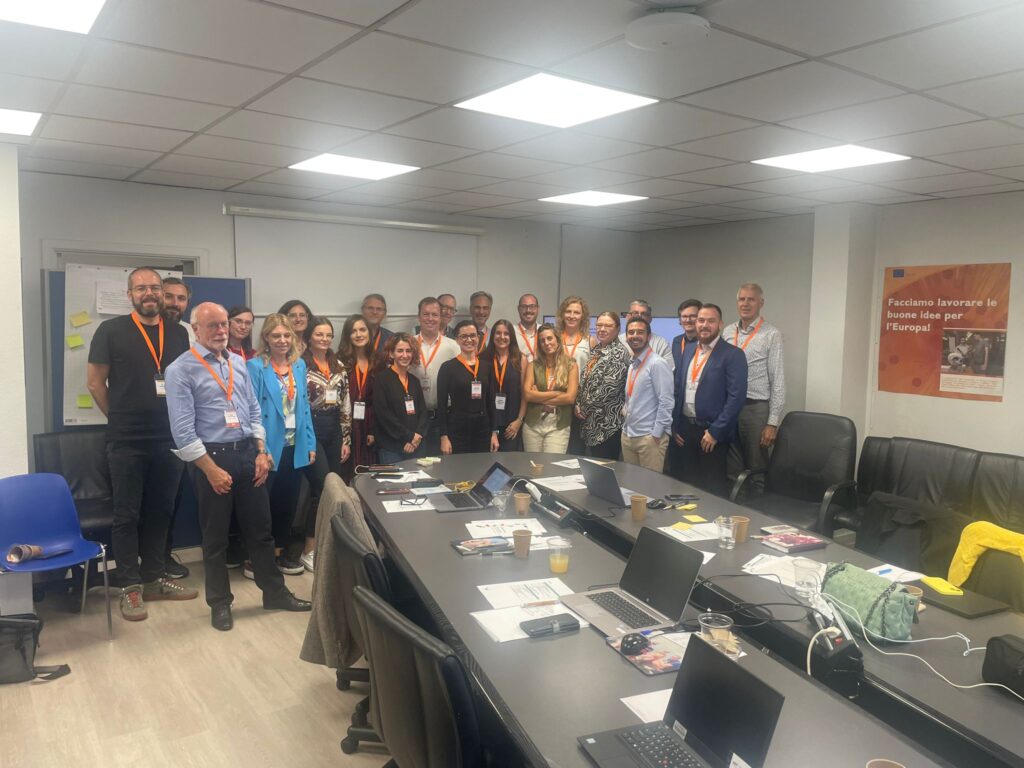The DRG4FOOD Focus Group
On September 21, 2023 the DRG4FOOD project held a focus group at the ENEA office in Brussels. Almost 20 experts from different fields like food data, consumer trust, standards, and nutrition come together to discuss the evolving tech landscape and its implications for our daily food choices.
These experts represented a wide array of stakeholders within the food system, including researchers, tech providers, industry leaders, rappresentative of NGOs, and more. The overarching mission of this gathering was to conduct an in-depth analysis of the three critical use cases selected by the DRG4FOOD project: food tracking, personalized nutrition, and consumers’ food choices. The goal was to identify existing technology gaps and potential risks in these areas and ultimately contribute to the development of a more trustworthy food and nutrition industry.
The discussions that unfolded during this meeting were interesting, with experts from various backgrounds bringing their unique perspectives to the table. The core findings and insights from the focus group discussions will soon be translated into a comprehensive “map&gap analysis” document. This document will serve as a valuable resource, outlining the current state of the food and nutrition industry, identifying areas that require improvement, and proposing guidelines for future developments in the DRG4FOOD project.
One of the key outcomes was the decision to refine one of the selected use cases above mentioned. Initially, the project aimed to delve into personalized nutrition from a medical and clinical standpoint, but the experts recognized the importance of shifting the focus towards personal choice in nutrition. This adjustment reflects the growing importance of consumer empowerment in shaping their dietary preferences. Therefore, we decided to change the name and the focus into “targeted nutrition”.
One of the central themes that emerged during these discussions was the critical role of technology, particularly sensors and apps. Experts highlighted the potential of these tools to revolutionize food tracking, making it more transparent and accessible to consumers.
Moreover, the group explored how technology could influence consumers’ food choices. By providing individuals with access to comprehensive and accurate information about the nutritional content, sourcing, and environmental impact of food products, technology can empower consumers to make informed and sustainable choices.
In conclusion, the DRG4FOOD Focus Group was a dynamic and thought-provoking gathering of experts dedicated to reshaping the food and nutrition industry. The forthcoming map&gap analysis document promises to be a valuable resource in guiding the future of this project, ensuring that technology serves as a force for positive change in our food systems. As we move forward, the fusion of technology and nutrition promises to empower consumers, enhance transparency, and create a healthier, more sustainable food future.


